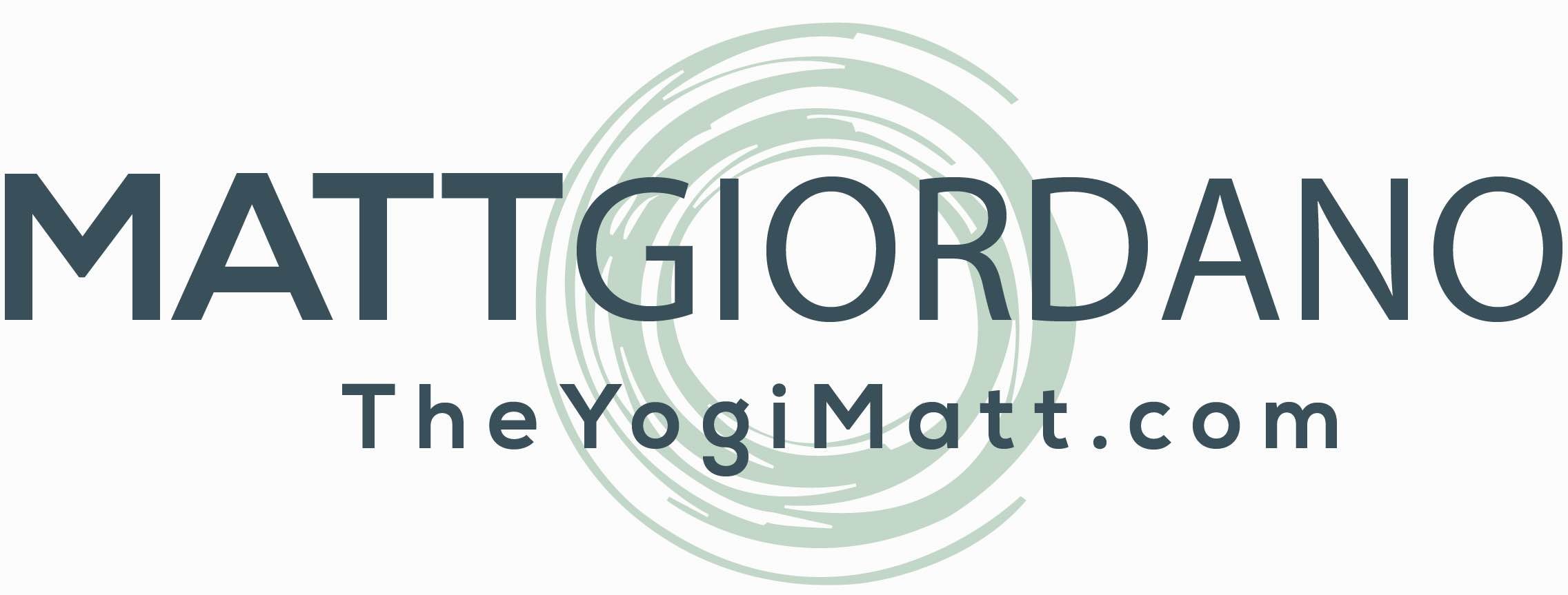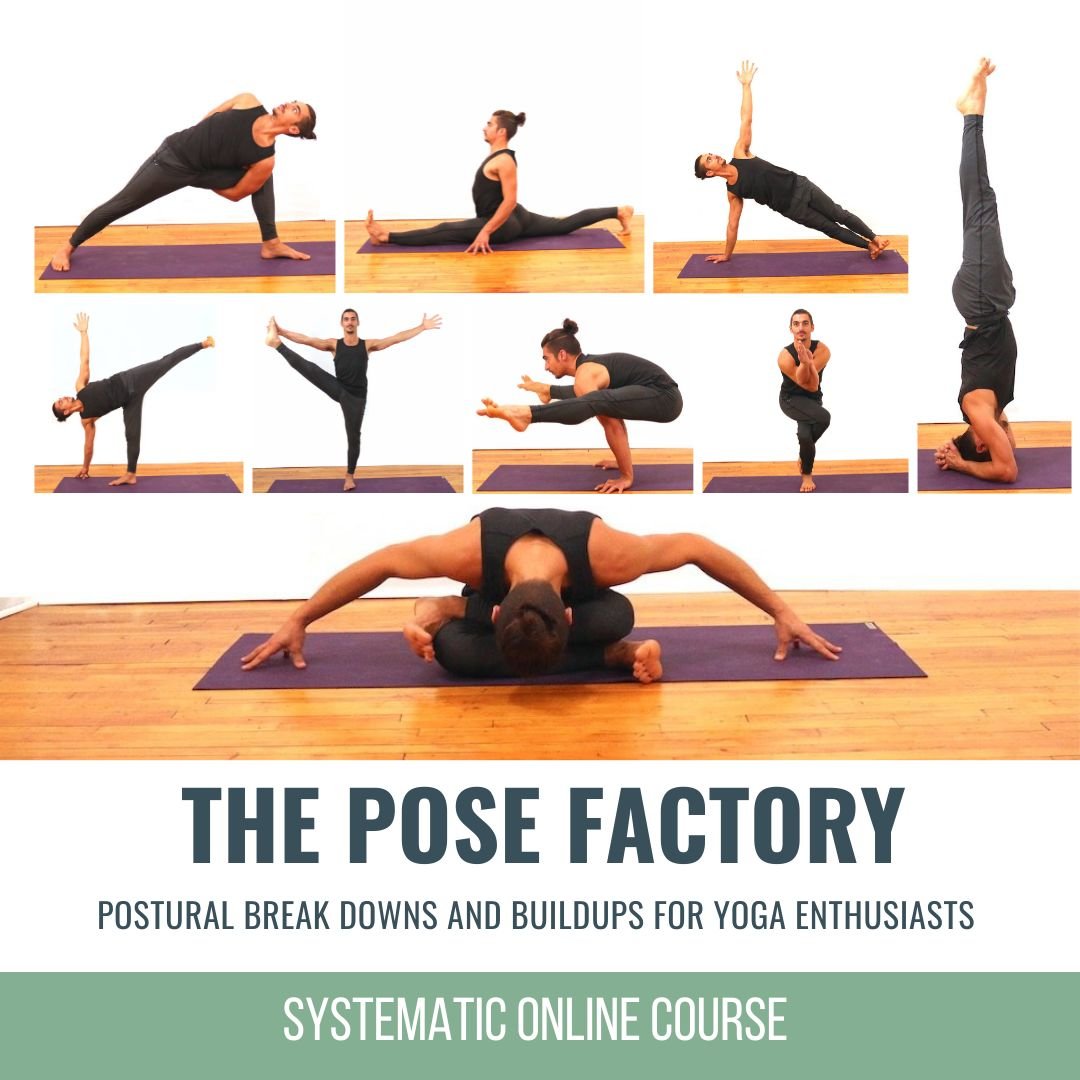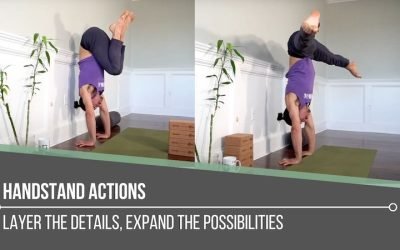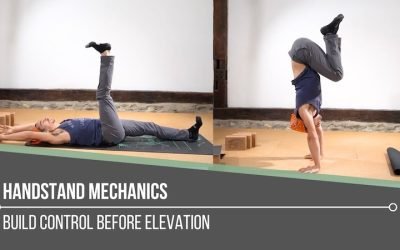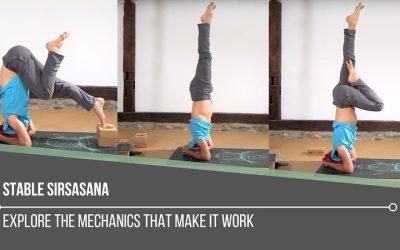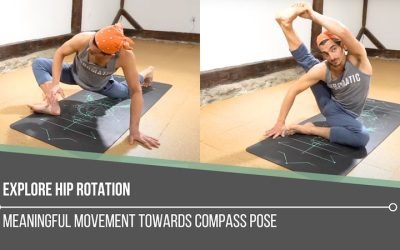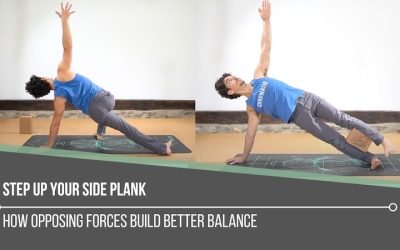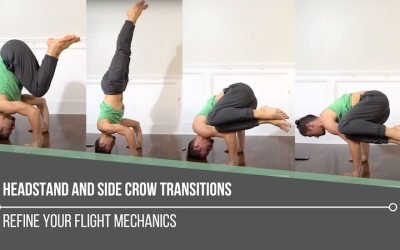Handstand ActionsLEAN, GRIP, PUSHHANDSTAND ACTIONS Handstand isn’t something we conquer in a single class, it’s a layered process that demands repetition and refinement. There are certain key handstand actions that are non-negotiable: lifting the shoulders up to the...
Yoga Props & Your Practice
Yoga Props and Your Practice
alignment
YOGA PROPS AND YOUR PRACTICE
When it comes to incorporating yoga props into our yoga practice, we can take 1 of 2 paths. We either subscribe to the notion that if we use props, we are somehow “less capable” than others in the execution of postures, or we can welcome props with open arms. Using yoga props in our practice can help us achieve greater accessibility within a given posture, and they provide opportunities for us to explore our alignment. They also allow us to discover where our strengths and challenges reside. In today’s video, Matt demonstrates how we can more carefully explore techniques in various postures with a variety of yoga props to move us towards greater understanding of our bodies. This understanding ultimately leads towards an unlocking and expansion of our highest potential.
THE POSE FACTORY
WAITLIST NOW OPEN
- Dogmatic alignment versus functional alignment
- Learn popular postural pitfalls
- Myths versus truth
- Formulaic approach for comprehensive learning
- Excellent guide for yoga enthusiasts
- Must-have for yoga teachers
- Joint-health awareness
- Muscle integrity, range of motion
- Props for accessibity
- Alignment alterations in the case of injuries
DON’T TRY THIS AT HOME
It might be surprising to see Matt using a camera tripod as a yoga prop in the first part of today’s video, but what’s great about this portion of the demonstration is that he’s not recommending using a tripod as a prop, but it serves as a very quick “how-to” to incorporate what he’s actually suggesting–a broom or a wooden dowel. This part of the video also serves as a reminder that we have license to be creative with our use of yoga props (as long as they are safe of course).
Later, he offers greater detail in both an Open and Closed Seated Twist and in Revolved Side Angle.
The point of using a prop in this way is to lock into the expansion of the chest and isolation of the spine in twist postures, which removes the common tendency of compensating with the shoulders in twist postures.
WATCH THE VIDEO
YOGA PROPS AND YOUR PRACTICE: 5 POSTURES TO MULTIPLY YOUR POTENTIAL
TRAIN WITH A CHAIR
If it feels like “train” is the wrong choice of word here, please hear me out. What I really mean is to develop our practice through the use of a chair in foundational postures so as to better practice specific techniques. Matt offers A LOT of opportunities to incorporate various techniques in the following 2 postures with a chair:
Warrior 2
In Warrior 2, we can explore the placement of the pelvis, activation of the legs (glutes and adductors in particular), and strengthening of the ankles and feet. Matt demonstrates the exploration of these techniques while sitting on the edge of the chair and then again translating the techniques while slightly lifting off of the chair. Going back and forth here can help reveal where challenges exist.
Extended Side Angle
Again, the chair provides a checking-in point for the positioning of the groin and further exploration of how to strengthen the legs.
200 HOUR ONLINE TEACHER TRAINING
GET CERTIFIED & DEEPEN YOUR YOGA PRACTICE
- Deepen your yoga practice
- Build confidence speaking in front of groups in person and online
- Learn foundational class structures and templates
- Learn techniques for a wide range of yoga postures
- Get certified and highly qualified to teach yoga
- Yoga Alliance Globally Recognized Certification Program
BLOCKS FOR MORE THAN BALANCE
It just so happens that in this demonstration, we again explore the importance of the positioning of the pelvis. The intent is to find a position where the pelvis on the side of the elevated leg is just slightly lifted. When we find the ideal positioning in our bodies, we’re better able to activate the glutes and hamstrings of the raised leg. To go even further, the tucking of the sit bone in the standing leg encourages the same outcome.
Why are the use of the blocks and a wall important here? This exploration/negotiation becomes much easier when we are supported. We can then challenge ourselves to lessen the weight on the blocks to see if we are able to maintain the strength we have cultivated. It’s therefore about much more than balance; it’s about how to foster strength.
300 HOUR ONLINE TEACHER TRAINING
GET 500 HOUR CERTIFIED AS A MASTER TEACHER
Master your skill set as a teacher through refined techniques, anatomy, biomechanics, sequencing, philosophy, meditation techniques, theming, yoga business, and much more!
- Get 500 hour certified
- Learn anatomy, biomechanics, asana techniques
- Expand your teaching skills
- Masterful sequencing and verbal delivery
- Learn meditation and breathwork techniques
- Transformative tools: theming, dharma talks, satsang
PROPS AND POTENTIAL
As we can see from the video, yoga props (and other tools for that matter) can be like our own private yoga teachers offering adjustments. We can observe this effect in Twist postures. It can be easy to fall into familiar patterns with yoga poses we engage in regularly, but when we incorporate props into our practice, we can better explore more functional alignment. This will have a greater impact on muscle strength and joint health. When we nurture these areas in our asana practice, we can better achieve our true potential.
Matt’s online course The Pose Factory is the perfect course to delve into these concepts. Sign up to get on the waiting list today!
The 200 Hr. Teacher Training: Click Here to See the Next Start Date
The 300 Hr. Advanced Teacher Training: Click Here to See the Next Start Date
Article by Trish Curling
Videos Extracted From: Alignment Immersion
ONLINE ANATOMY COURSE
- Accessible, exciting, and easy to learn
- Anatomy and biomechanics for yoga
- Appropriate for both teachers and students
- Learn joint alignment vs pose alignment
- Demystify yoga poses and transitions
- Release aches and pains
- Learn how to avoid common injuries
- Caters to all levels with modifications and props
- 20 hours Continued Education Credits with Yoga Alliance
- 20 hours toward Chromatic Yoga Certification and 300 Hour
- Lifetime access
Continue Learning
Handstand Actions
Handstand Mechanics
Handstand MechanicsINVERSIONHANDSTAND MECHANICS Stability, strength, and coordination come together in the pursuit of mastering handstand mechanics. One of the most critical foundations is internal rotation at the hip joints, which can aid with certain entries and...
Stable Sirsasana
Stable SirsasanaHEADSTANDSTABLE SIRSASANA Creating a stable Sirsasana is less about the final pose and more about the mechanics that lead us there. From weight transfer and spinal alignment to hamstring flexibility and shoulder engagement, each layer matters. Unlike...
Explore Hip Rotation
Explore Hip RotationSURYA YANTRASANAEXPLORE HIP ROTATION Hip rotation isn’t just an anatomical concept—it’s an open invitation to become more intimate with our body’s story. In yoga, we often live in lateral (external) rotation, especially in hip-opening postures....
Step Up Your Side Plank
Step Up Your Side PlankVASISTHASANASTEP UP YOUR SIDE PLANK Side Plank might look simple, but true proficiency starts in the details. One of the keys to refining the posture is learning how opposing muscle groups create an isometric contraction—a subtle engagement that...
Headstand and Side Crow Transitions
Headstand and Side Crow TransitionsPARSVA BAKASANAHEADSTAND AND SIDE CROW TRANSITIONS Mastery begins with mechanics, especially when it comes to headstand and side crow transitions. Each posture on its own demands control, coordination, and a deep understanding of...
THE FREE TECHNIQUE PACK
When You Subscribe, You Will Get Instant Access to
- the Technique Pack: 15 yoga pose breakdowns
- exclusive online course discounts
- exclusive blogs and videos
